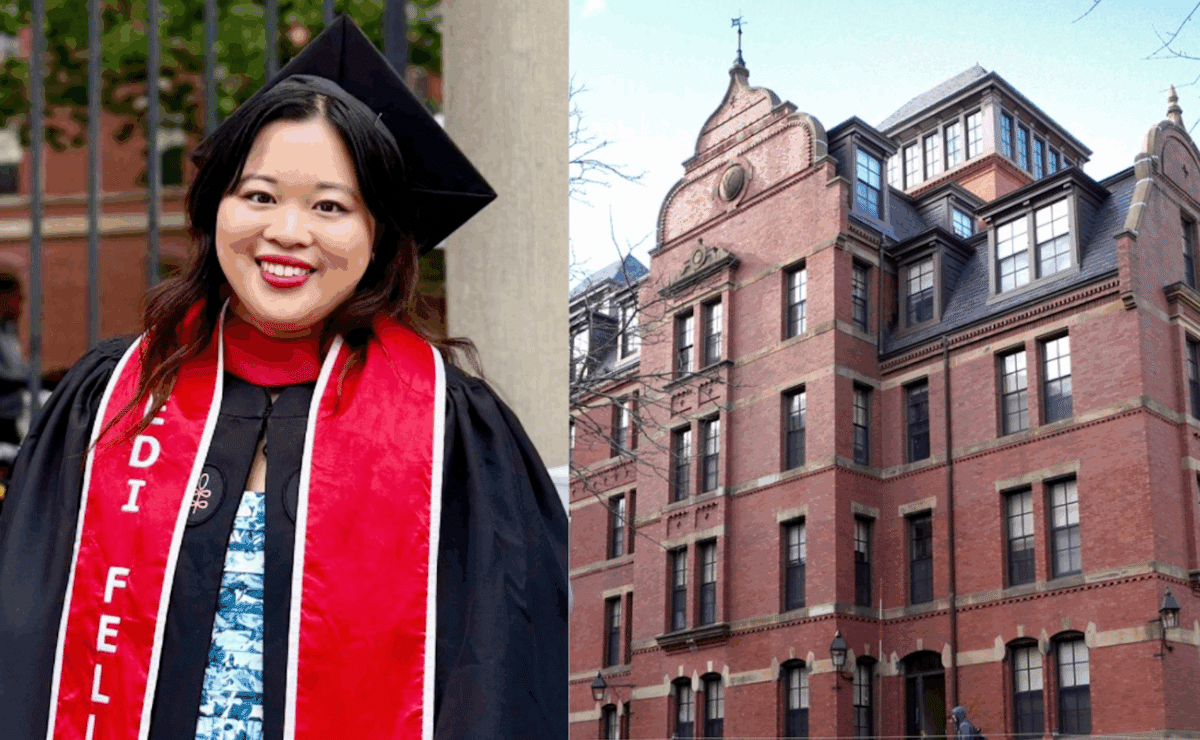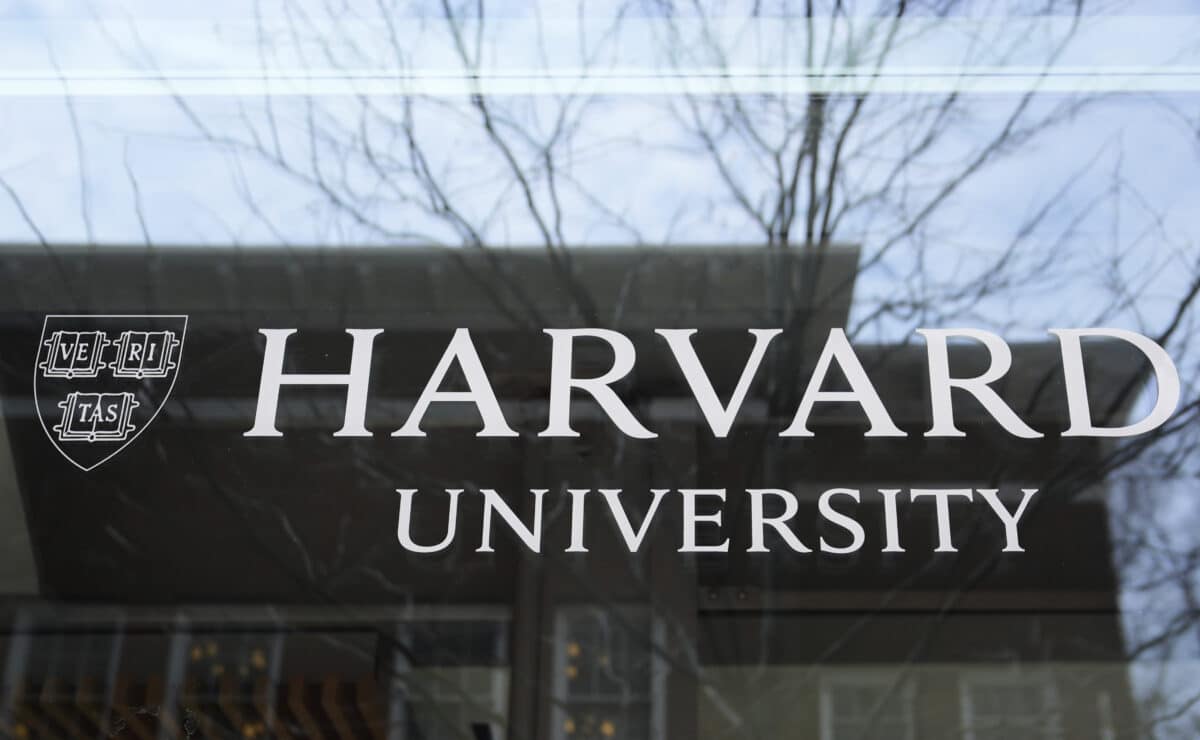Filipino Harvard grad reacts to Trump’s foreign student ban

Candice Mazon
NEW YORK — International students at Harvard University breathed a sigh of relief after a federal judge issued a temporary restraining order allowing the school to continue enrolling them while the case proceeds.
Still, many remain anxious about how long these protections will last, especially after the Trump administration announced a ban on new international enrollments, igniting a high-stakes legal battle.
Candice Mazon, who recently graduated from the Harvard T.H. Chan School of Public Health, said policies targeting international students threaten the core values of diversity, inclusion and global collaboration that define American higher education.

Candice Mazon | CONTRIBUTED
The controversy began in April when the administration demanded that Harvard overhaul its governance, end DEI (diversity, equity and inclusion) programs, adopt merit-based hiring and submit to government audits focused on “viewpoint diversity.”
When Harvard refused, the government froze $2.2 billion in grants and $60 million in contracts and threatened to revoke the university’s tax-exempt status.
Mazon, a Filipino American who celebrated her graduation earlier this week, is part of the vibrant international community that makes Harvard a global hub for learning and innovation.
“Harvard prides itself on the diversity of its student body, and a ban on foreign students would gut what makes Harvard special,” Mazon told Inquirer.net USA.
“This isn’t just about losing diversity in terms of race, ethnicity or country of origin – it’s about eliminating the diversity of perspectives, thought, experiences and backgrounds that makes Harvard such an incredible place to learn.”

Graduates applaud during commencement ceremonies at Harvard University, Thursday, May 29, 2025, in Cambridge, Mass. (AP Photo/Charles Krupa)
In late May, the Department of Homeland Security revoked Harvard’s Student and Exchange Visitor Program certification, effectively barring new international students from entering the US and forcing current students to transfer or lose legal status.
Harvard responded with a lawsuit, arguing that the actions violated constitutional protections and the Administrative Procedure Act.
Mazon said the recent policies aimed at restricting new international student visas are more than bureaucratic hurdles.
“When you remove that global perspective, you’re dismantling what made the learning community you get to participate in as a Harvard student so transformative in the first place,” she said.
The administration framed its actions as retaliation for Harvard’s refusal to comply with ideological demands, accusing the university of antisemitism and foreign coordination.
During the university’s commencement ceremonies, Harvard President Alan Garber emphasized the importance of international students, stating, “You are the hope of this institution… May you carry the best of what Harvard is and does into the world that awaits you.”

Harvard President Alan Garber acknowledges an extended round of applause during Harvard University’s commencement ceremonies, Thursday, May 29, 2025 in Cambridge, Mass. (AP Photo/Charles Krupa)
The impact on students was profound — about 6,800 international students, or 27 percent of Harvard’s enrollment, faced uncertainty and potential loss of legal status.
Mazon’s experience underscores the importance of international perspectives in academia.
“At the Harvard T.H. Chan School of Public Health, about 40 percent of my classmates were international students and this mix in the student body was essential to the quality of my education,” she said.
“No field can reach its potential when limited to just American perspectives. Whether it’s public health, medicine, law or engineering – we need global voices to create solutions for society’s biggest problems.”
Mazon worries that policies like the ban will diminish these vital exchanges.
“It will negatively affect the global reputation of Harvard and other American universities,” she said.
“What was once thought of as a prestigious place to learn and at the forefront of research and academia will reverse that trajectory. These institutions would fall behind universities in countries that continue to welcome the world’s brightest minds.”

FILE – The Harvard University logo is displayed on a building at the school, Tuesday, April 15, 2025, in Cambridge, Mass. (AP Photo/Charles Krupa, File)
For students from the Philippines and across Asia, Mazon believes these policies could mean that America would no longer represent opportunity.
“Because of that, other countries would benefit from our loss, welcoming the talent we chose to reject,” she said.
“It signals that we’ve retreated from the global stage, that we’re more interested in building walls than building knowledge.”
Her concerns extend beyond institutions. “This policy does not at all reflect what Harvard is about – it’s antithetical to the best parts of being a student here,” she said.
“The Harvard community believed and lived the values of welcoming different perspectives and creating space for everyone to belong, which is what diversity and inclusion is all about.”
She fears long-term consequences for future international students.
“The impact goes beyond individual opportunities – America and the rest of the world will feel the consequences. The international community that studies at Harvard makes up the world’s best researchers, scientists, teachers, public servants, doctors, lawyers and everything in between.”

FILE – A relief sculpture rests on a gate to the entrance of Harvard University, in Cambridge, Mass., March 13, 2016. (AP Photo/Steven Senne, File)
Harvard argues that the actions are retaliatory, particularly after the university refused to comply with ideological demands. The university contends that the government’s accusations, including claims of antisemitism and foreign coordination, are unsupported and violate free speech and due process rights.
“International students are essential contributors to the intellectual vitality and global reach of institutions of higher learning like Harvard,” said Michael Vea, a Filipino American Harvard alumnus who finished his doctorate in education in 2020.
“Halting the enrollment of international students would be a significant detriment to the university and to the broader foundations of American democracy.”
A Filipino staff member at Harvard, requesting anonymity for fear of retaliation, added, “Harvard has many strong and influential alumni, and hopefully, they will step in to support the university against this decision.”
Meanwhile, the Philippine Consulate General in New York reaffirmed its support for Filipino international students amid uncertainties in US higher education during the 8th Annual Harvard Club of the Philippines Pinoy Graduation in Cambridge, Massachusetts.
Consul General Senen Mangalile emphasized community and acknowledged the challenges posed by shifting policies affecting international students.
“The Consulate stands ready to assist you as you pursue your dreams and represent the Philippines abroad,” he said in his speech.
Legal experts warn that the case could set a precedent for federal interference in university governance and curricula. A key court hearing is scheduled for July, where judges will decide whether Harvard can maintain its international enrollment amid the ongoing legal dispute.
Harvard’s leadership remains hopeful, with Garber affirming their commitment to international students. “May you carry the best of what Harvard is and does into the world,” he said.
Mazon concluded with a call for unity and continued openness. “Diversity isn’t just a buzzword – it’s the backbone of progress,” she said.
“Policies that restrict international students weaken our institutions and narrow our perspectives. We need global voices to create solutions, not walls to divide us.”

